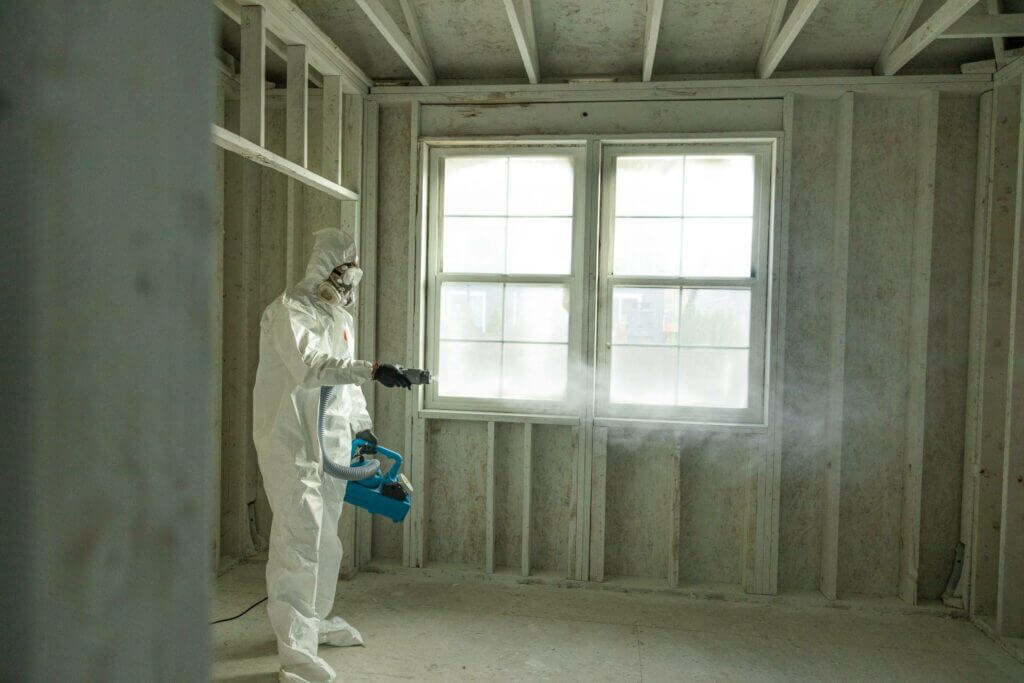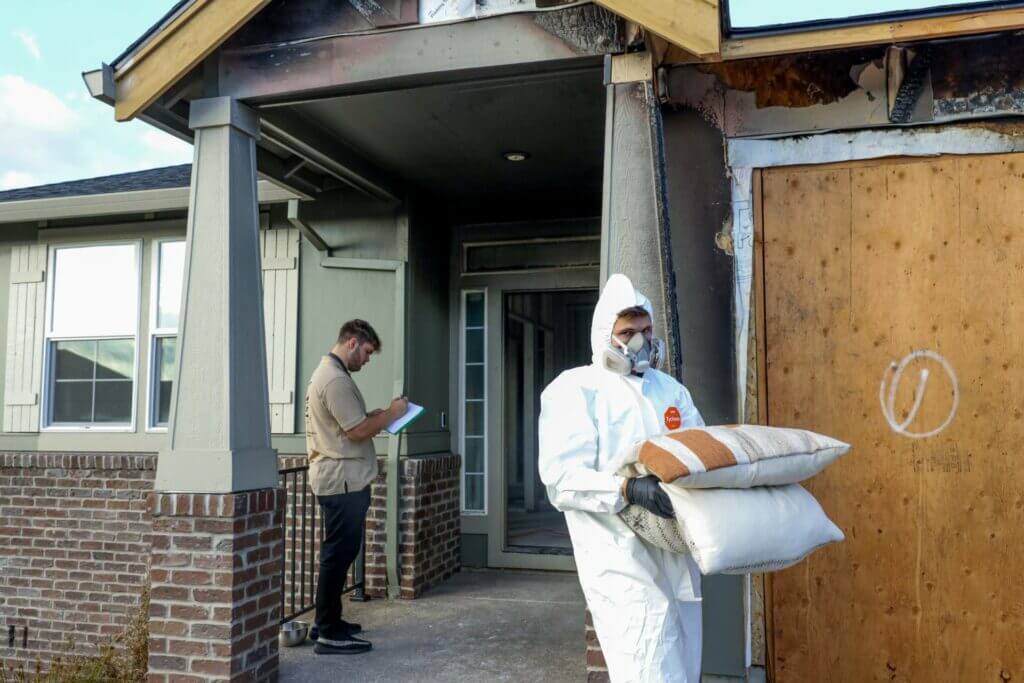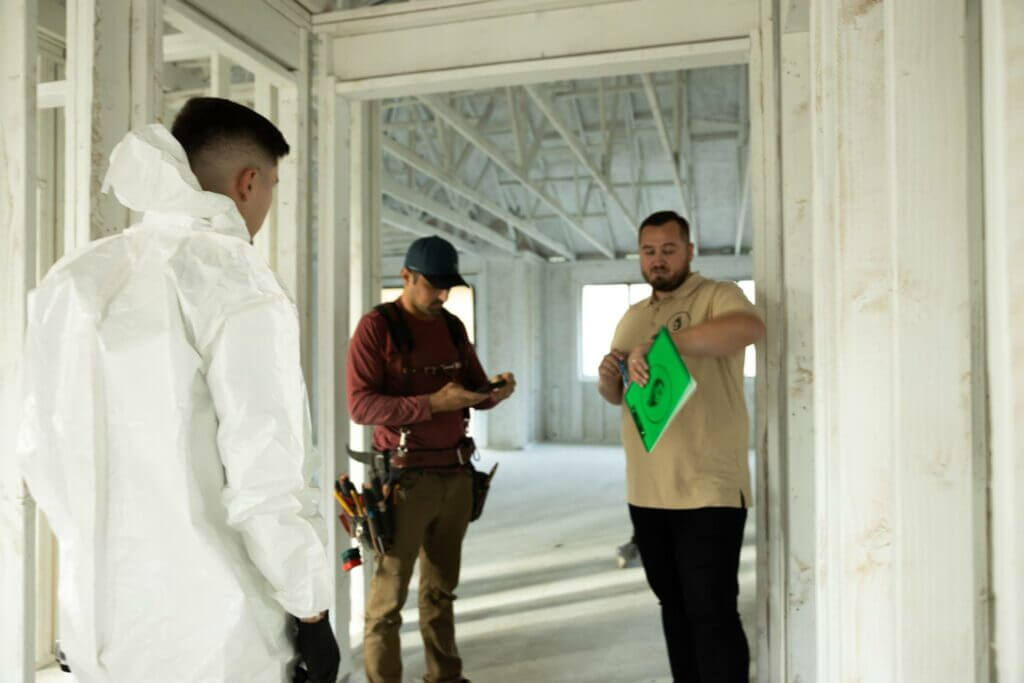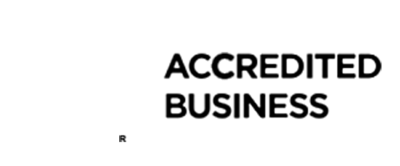“Should I Get a Mold Inspection When Buying a House?”
Buying a new house is an exhilarating journey, but it comes with its share of responsibilities and considerations. One crucial question that often arises during this process is, “Should I get a mold inspection when buying a house?” In this comprehensive guide, we’ll delve into the importance of mold inspections, what they entail, and how they can impact your home-buying decisions.


Understanding Mold Inspections
What is Mold?
Mold, a type of fungus, flourishes in environments with high moisture levels and humidity, increasing on surfaces such as walls, ceilings, and floors. Its appearance varies, commonly manifesting as black, green, or white patches, and it poses health risks when inhaled or touched, potentially causing respiratory issues and allergic reactions. Effective prevention involves controlling moisture levels, improving ventilation, and promptly addressing any water leaks or dampness to mitigate mold growth.
Common Types of Mold
Different types of mold commonly found in homes include Stachybotrys (black mold), Aspergillus, Penicillium, and Cladosporium, each possessing distinct characteristics and health implications. Stachybotrys, notorious for its dark appearance, is linked to respiratory issues and allergic reactions, while Aspergillus can cause respiratory infections in susceptible individuals.
Penicillium and Cladosporium are known allergens. Penicillium is also capable of producing mycotoxins under certain conditions, posing additional health risks. Identifying the specific type of mold present during the inspection is crucial for determining appropriate remediation measures and addressing potential health concerns.
Health Risks Associated with Mold Exposure
Exposure to mold spores can trigger allergic reactions in susceptible individuals, manifesting as sneezing, coughing, and nasal congestion. Prolonged exposure to mold may worsen respiratory conditions like asthma and increase the risk of respiratory infections, especially among children and the elderly. Individuals with compromised immune systems are particularly vulnerable to severe health complications from mold exposure, highlighting the importance of promptly addressing and remedying mold issues in indoor environments.
Why Are Mold Inspections Important?
Mold presents significant health hazards, particularly for those with allergies, asthma, or weakened immune systems, as it can exacerbate respiratory issues and lead to infections. Furthermore, prolonged exposure to mold can result in structural deterioration of buildings, compromising their integrity and safety. Timely identification and remediation of mold infestations are crucial to safeguarding both the health of occupants and the structural integrity of properties.


When Should I Get a Mold Inspection When Buying a House?
Before Making an Offer
Scheduling a mold inspection before making an offer on a property is highly recommended due to the potential health hazards and financial implications associated with mold infestations. This proactive approach enables you to identify any existing mold issues and assess the extent of the problem, providing valuable information to negotiate repairs or adjust your offer accordingly. By addressing mold concerns early on, you can make a more informed decision and potentially avoid costly remediation expenses down the line.
During the Due Diligence Period
During the due diligence period following the acceptance of your offer, you have the opportunity to conduct thorough inspections, including a mold inspection, to assess the property’s condition comprehensively. This crucial step allows you to uncover any potential issues, such as mold growth, which could impact the property’s value or pose health risks. By gaining clarity on the property’s condition upfront, you can make informed decisions about whether to proceed with the purchase or negotiate necessary repairs or adjustments.
After Noticing Signs of Moisture or Mold
Noticing any indications of moisture intrusion or mold growth during your initial inspection is critical. Addressing these issues promptly can prevent them from escalating into more severe problems over time. Requesting a professional mold inspection ensures thorough assessment and appropriate remediation measures, safeguarding the property and its occupants from potential health hazards.
Why Consider Mold Inspection When Buying a House?
Hidden Mold Issues
Mold growth can increase in areas not readily visible to the naked eye, such as within walls, ceilings, or other concealed spaces within a home. Conducting a comprehensive mold inspection is crucial as it can reveal hidden mold problems that might escape detection during a routine home inspection. Identifying and addressing these hidden mold issues promptly can prevent potential health hazards and structural damage to the property.
Impact on Property Value
The presence of mold in a property can substantially diminish its market value due to health concerns and potential structural damage. Buyers often use the discovery of mold during inspections as leverage to negotiate a lower price or to demand thorough mold remediation before finalizing the sale. Addressing mold issues promptly and transparently can help sellers maintain the value of their property and facilitate a smoother transaction process.


Health Concerns for Occupants
When considering purchasing a home, prospective buyers prioritize the safety and well-being of future residents. Mold inspection serves as a crucial step in assessing potential health risks within the property, offering valuable insights into any existing mold issues that could pose health hazards. Armed with this information, buyers can make informed decisions about whether to proceed with the investment or negotiate remediation measures before finalizing the purchase.
Process of Mold Inspection
Visual Inspection
During a mold inspection, experts meticulously survey the property for any indications of mold growth, focusing mainly on areas prone to moisture accumulation, such as bathrooms, basements, and crawl spaces. Through a thorough visual examination, they identify any visible mold, moisture damage, or conditions that could promote mold proliferation. This meticulous process helps ensure the early detection and effective remediation of mold issues, safeguarding both the property and its occupants from potential health hazards.
Sampling and Laboratory Analysis
When dealing with suspected mold contamination, collecting samples from affected areas is crucial for laboratory analysis. These samples allow experts to accurately identify the specific type of mold present and its concentration, enabling informed decisions regarding remediation strategies. This data plays a vital role in ensuring effective and targeted mold removal, thereby mitigating potential health risks and preventing further damage to the property.
Identification of Mold Sources
Mold inspectors play a crucial role in identifying the root causes of mold growth within indoor environments. Through meticulous examination, they pinpoint issues like water leaks, inadequate ventilation systems, or elevated humidity levels that foster mold proliferation. By addressing these underlying factors, mold inspectors not only eradicate existing mold but also prevent its recurrence, ensuring healthier and safer living or working spaces for occupants.
Benefits of Mold Inspection
Early Detection of Mold Problems
Detecting mold issues early enables property owners to swiftly address the problem, limiting the spread of damage throughout the building and safeguarding its structural integrity. Prompt remediation efforts also play a crucial role in mitigating health risks associated with mold exposure, such as respiratory issues and allergic reactions, thereby ensuring a safe and healthy environment for occupants. By proactively identifying and addressing mold growth at its onset, property owners can significantly minimize both the financial and health-related consequences associated with prolonged mold infestation.
Negotiating Power in Real Estate Transactions
Knowledge of mold issues provides buyers with leverage during negotiations because it gives them grounds to request repairs or remediation from the seller before finalizing the purchase agreement. Sellers may be motivated to address mold problems to avoid potential legal issues and maintain the sale. This leverage allows buyers to ensure that the property they are purchasing is free from hazardous mold and meets their standards of safety and habitability.
Peace of Mind for Homebuyers
Conducting a mold inspection offers homebuyers invaluable reassurance by uncovering any hidden mold issues within the property. This proactive approach ensures that potential health hazards are identified and addressed before they can pose a threat to occupants. By investing in a thorough mold inspection, homebuyers can confidently move forward, knowing they’re providing a safer and healthier environment for themselves and their loved ones.
FAQs (Frequently Asked Questions)
What causes mold growth in houses?
Mold thrives in damp environments, so common causes include water leaks, high humidity levels, and poor ventilation.
How much does a mold inspection cost?
The cost of a mold inspection can vary depending on factors such as the size of the property and the extent of the inspection required. On average, expect to pay between $300 and $600.
Can I perform a DIY mold inspection?
While DIY mold testing kits are available, they may need to provide accurate results. For a thorough assessment, it’s best to hire a certified mold inspector.
What should I do if mold is found during the inspection?
If mold is detected, consult with a qualified mold remediation specialist to develop a plan for safe mold removal and remediation.
Does homeowners insurance cover mold inspection?
Mold inspections are typically not covered by homeowners insurance unless mold growth is the result of a covered peril, such as a burst pipe or storm damage.
How long does a mold inspection take?
The duration of a mold inspection can vary depending on the size and complexity of the property. On average, inspections take between 1 to 3 hours.
Conclusion
In conclusion, the question of “Should I get a mold inspection when buying a house?” should not be overlooked. Mold inspections offer invaluable insights into a property’s condition, helping you make informed decisions and safeguarding your health and investment. By prioritizing mold inspections during the home-buying process, you can ensure a smooth and worry-free transition into your new home.

